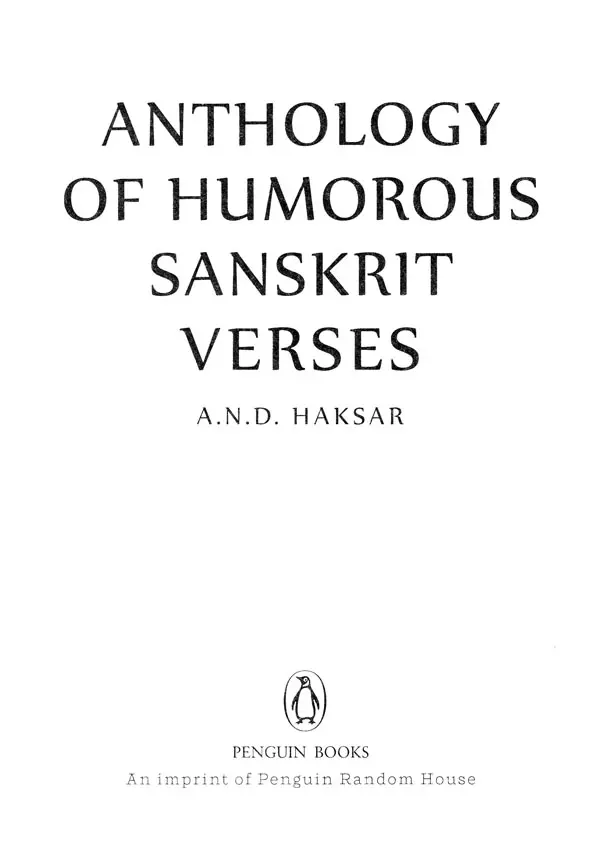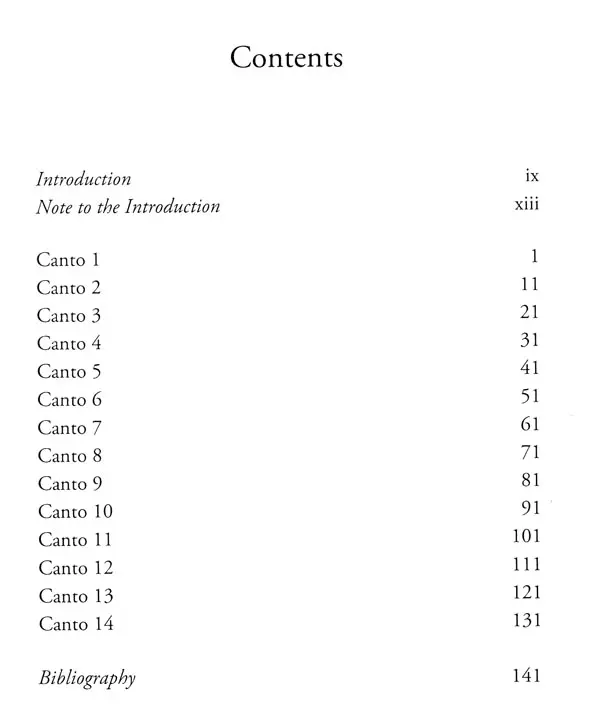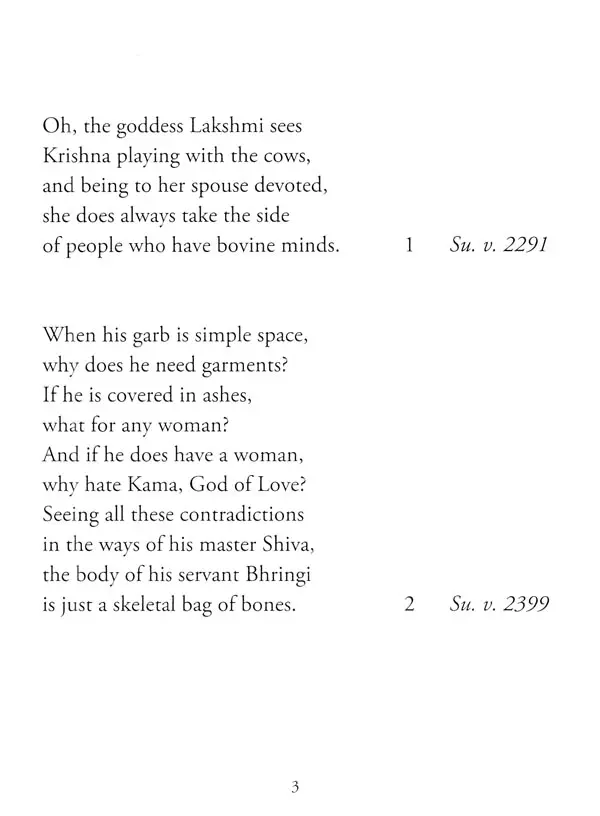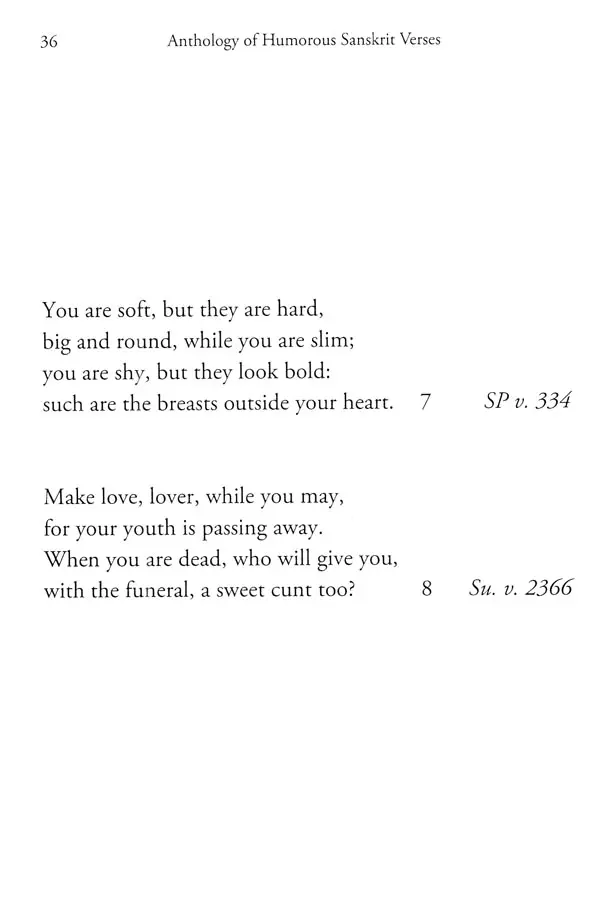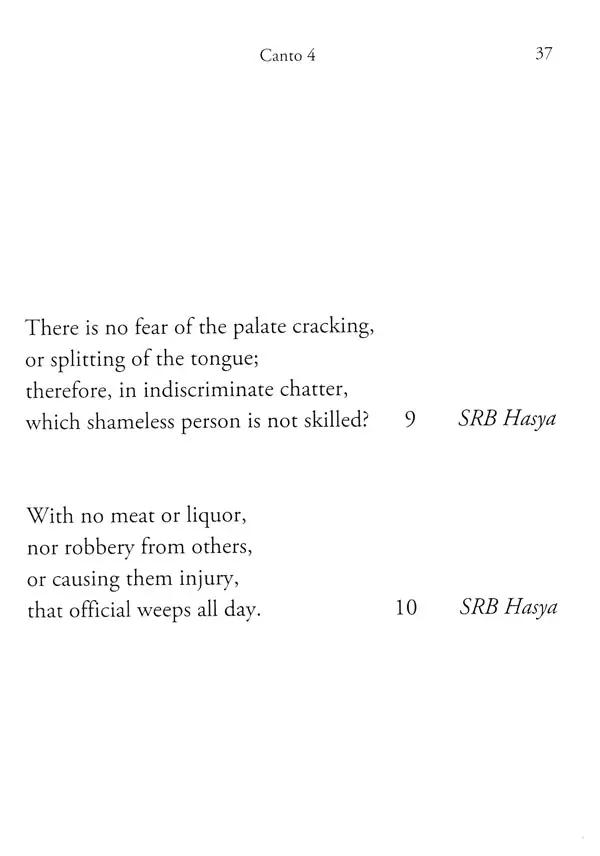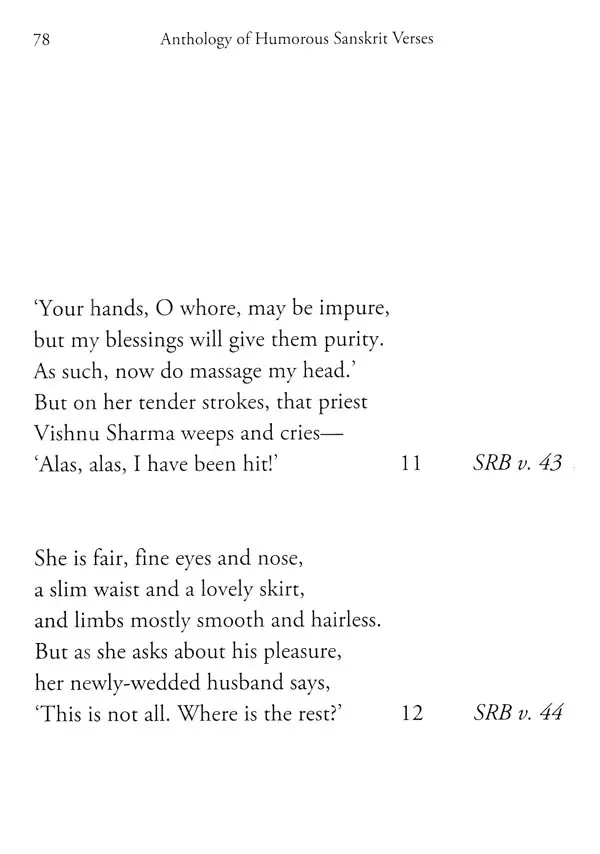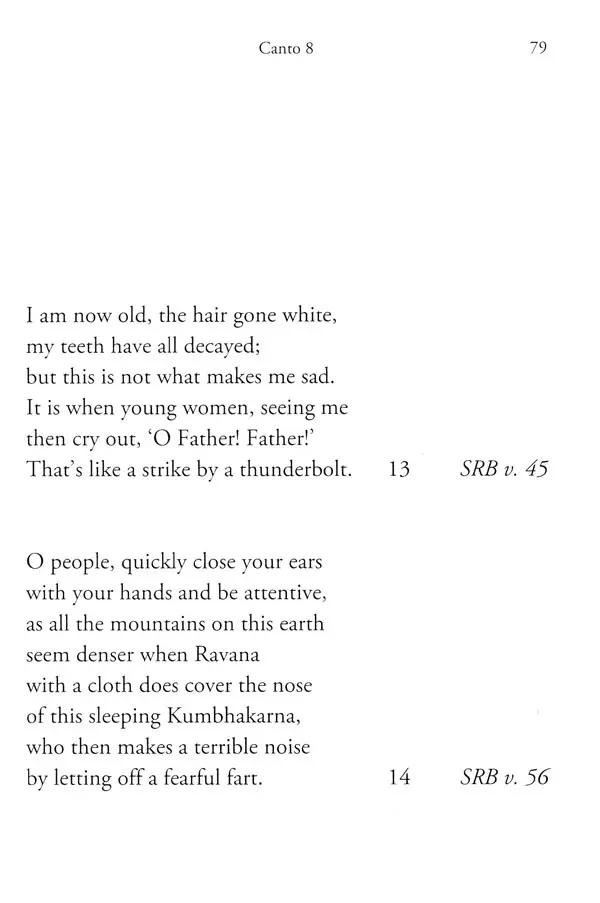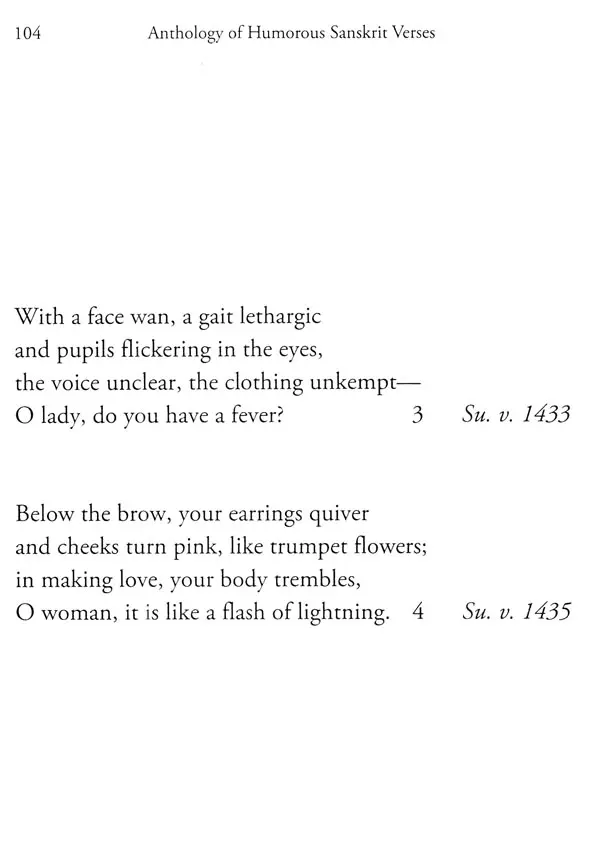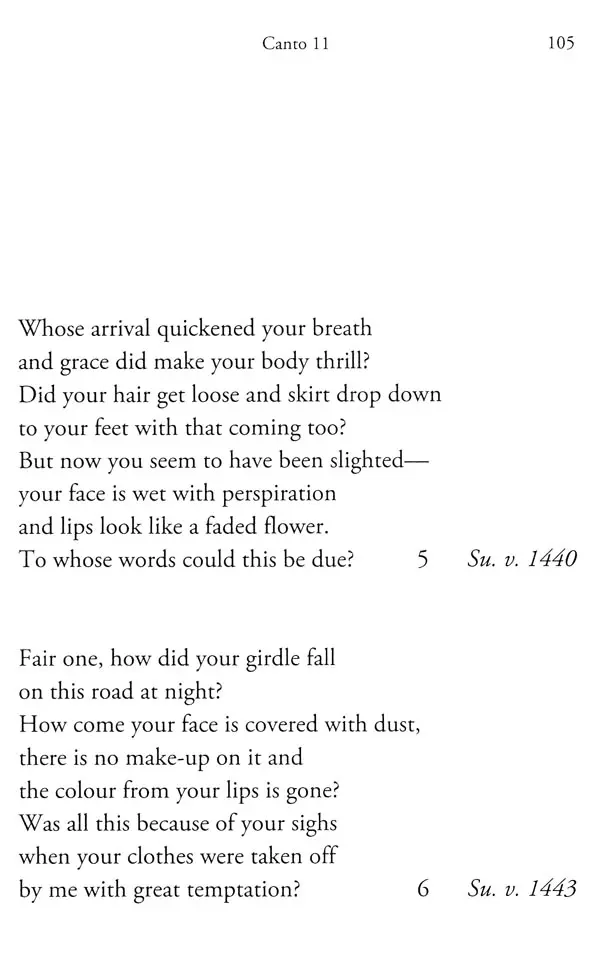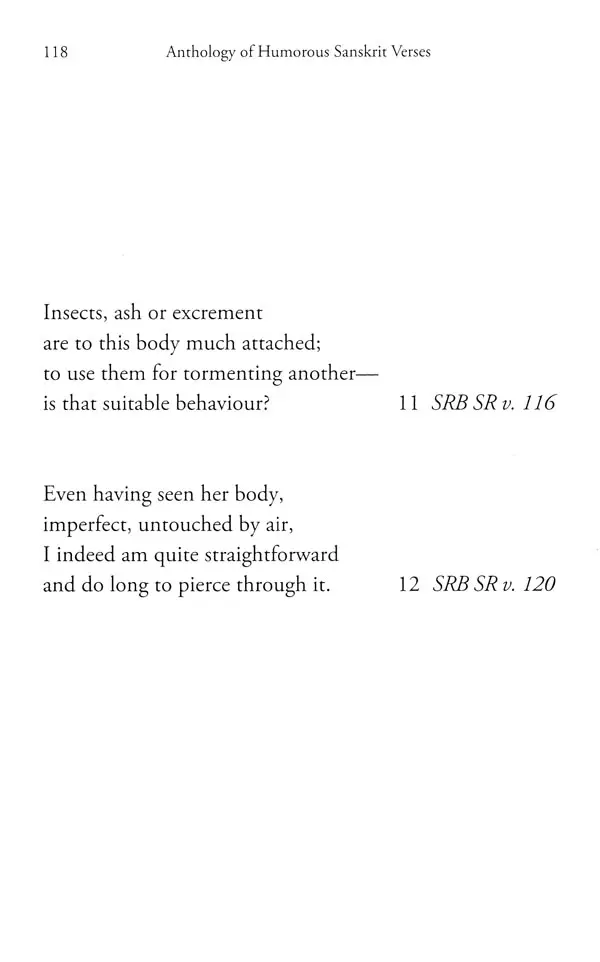
Anthology of Humorous Sanskrit Verses
Book Specification
| Item Code: | UBD627 |
| Author: | A.N.D. Haksar |
| Publisher: | Penguin Random House India Pvt. Ltd. |
| Language: | English |
| Edition: | 2022 |
| ISBN: | 9780670095827 |
| Pages: | 155 |
| Cover: | HARDCOVER |
| Other Details | 8.50 X 5.50 inch |
| Weight | 250 gm |
Book Description
In recent times, whenever ancient Sanskrit works are discussed or translated into English, the focus is usually on the lofty, religious and dramatic works. Due to the interest created by Western audiences, the Kama Sutra and love poetry has also been in the limelight. But, even though the Hasya Rasa or the humorous sentiment has always been an integral part of our ancient Sanskrit literature, it is little known today.
Anthology of Humorous Sanskrit Verses is a collection of about 200 verse translations drawn from various Sanskrit works or anthologies compiled more than 500 years ago. Several such anthologies are well-known although none of them focus exclusively on humor. A.N.D. Haksar’s translation of these verses is full of wit, earthy humor and cynical satire, and an excellent addition of the canon of Sanskrit literature.
is a well-known translator of Sanskrit classics. A long-time career diplomat, he served as the Indian High Commissioner in Kenya and the Seychelles, Minister in the United States and Ambassador to Portugal and Yugoslavia. His translations from Sanskrit include Hitopadesa, Simbasana Dvatrimsika, Subbasbitavali, Kama Sutra, The Courtesan's Keeper, The Seduction of Shiva, Suleiman Charitra, Raghuvamsam, Three Hundred Verses and Chanakya Niti, all published in Penguin Classics.
This collection is intended to provide the interested reader with some glimpses of the humorous sentiment or hasya rasa in ancient Sanskrit literature, an aspect not too well known in present times.
For many centuries, this great literature has come to be associated mainly with religion and philosophy, rituals of worship, and the retelling of myths and legends. Some didactic material from it on public and private life and some from literary classics is also known and studied. However, several other dimensions of this wide-ranging literature are now little known.
An over 2000-year-old treatise on the subject, the Narya Shastra of Bharata categorized eight rasas or sentiments evoked in Sanskrit drama and poetry. One of them was humorous (hasya). The others were erotic (shringara), heroic (vira), furious (raudra), fearful (bhayanaka), compassionate (karuna), marvellous (adbhuta) and horrific (bibbatsa). Calmness and peace (shanta) were later added to this list. Several scholars provided quotations from the classics to illustrate all nine sentiments, although those on hasya were usually fewer.
Still-studied ancient experts such as Anandavardhana, the ninth century author of Dhanyaloka, and Mammata. the eleventh century writer of Kavyaprakasa, exemplified all rasas with quotations from the Vedas and other scriptures as well as some mahakavyas or great poetic works. However, since such texts were not easily available for general readers, later experts began the practice of compiling verse anthologies of such poetry for a larger public readership. Several of these appeared over the last millennium and are still available today.
The collection presented here is largely of direct translations of selected verses from some of these still- respected medieval anthologies of Sanskrit verses. These are the thirteenth-century Sukti Muktavali (Pearl String of Verses) from the Deccan, the fourteenth-century Sarngadhara Paddhati (Guide of Sarngadhara) from Rajasthan, and the sixteenth-century Subhashitavali (Garland of Well-Said Verses) from Kashmir. A fourth, Subhashita Ratna Bhandagara (Treasury of Verse Gems) is the largest and dates a little later from present- day Maharashtra.
Book's Contents and Sample Pages
